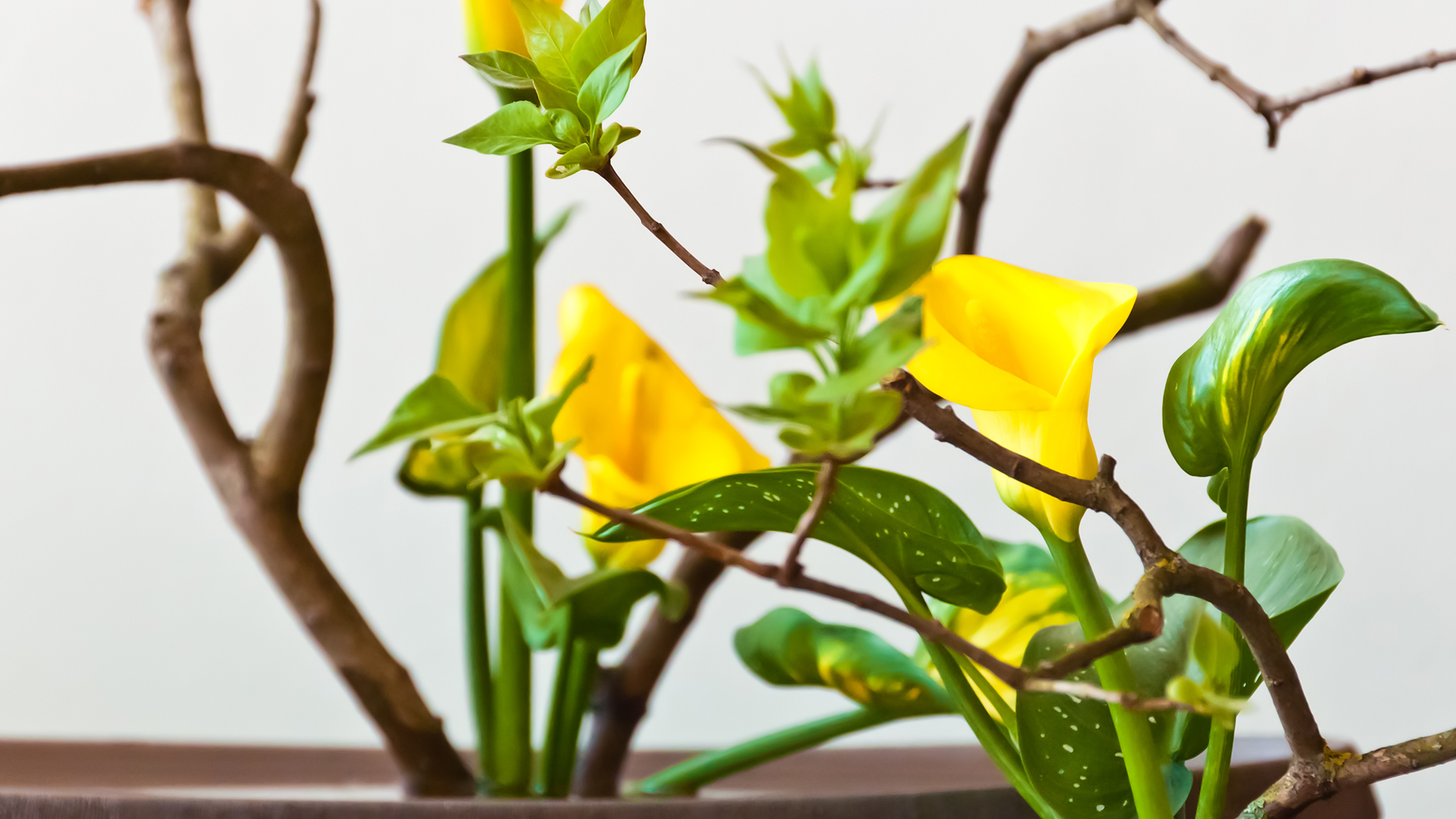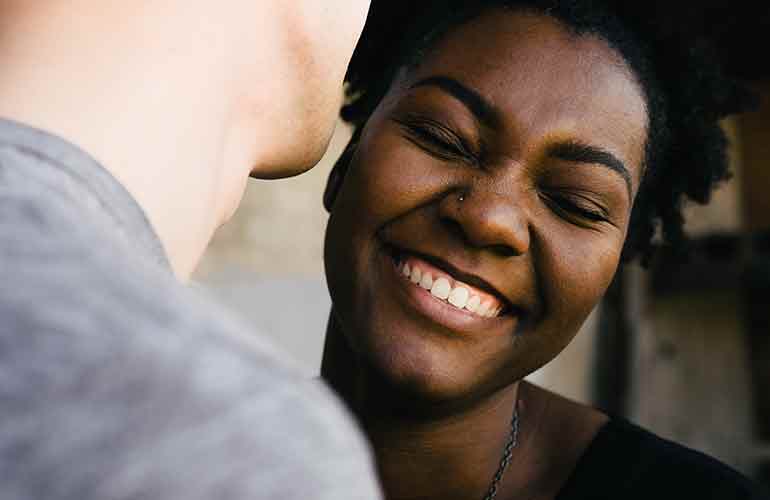Search the Community
Showing results for 'simple'.
-
Minimalism is a great way to unclutter your life, gain more space, and also deal with less stress. Happiness.com's Tine Steiss shares her simple rules of minimalism, and – like the practice itself – they are pretty minimal too! Minimalism is a great way of making space for the new year; for change, personal growth and development. Here's how to unclutter your life and make room to breathe and to be yourself. Think about your belongings like this: Everything needs to have a purpose. It can either be beautiful or useful or both. It is beautiful if you look at it several times a week and it makes you smile. It is useful if you use it several times a week. Put the other things in a box. Put the box aside for some weeks. You can take things you need out again. After some weeks, label the box and put it away.Take it out after several months. If you haven’t opened the box meanwhile, donate it without opening it again. You will create space in your life. You will establish character, time and priorities and most of all, by sticking with the useful and beautiful, you will become more yourself with less. Let go of the old – make space for something new! ● Main photo: colourbox.com Written by Tine Steiss Tine is part of the happiness.com team. She's an artist, meditator, media engineer and MBSR teacher. If she's not traveling she's working on turning her rooftop terrace into a garden paradise. Find out more about her on: Instagram.
-
I think it’s safe to say that acquiring material things aren’t making us any happier. In fact, stress and depression are more common now than ever before. We live in a world where consumption has become an addiction. It’s all about the getting the newest, latest or biggest, which distracts us from what really brings satisfaction and joy. I sometimes look around my apartment and think, “how did I accumulate so much crap?!”. I also often dream about being in place and when I have to leave, I struggle with packing my luggage because I just have SO. MUCH. STUFF! I remember a happiness.com article from a while ago, stating the benefits of living a simple life, and earlier today, I saw someone reading the book Simplify Your Life: 100 Ways to Slow Down and Enjoy the Things That Really Matter. Has anyone here read that book? Now, I’d like to know HOW to live a more simple life and where does one actually begin? I suppose making small manageable changes in the beginning is a good start. What are some of the ways we could all live simpler lives and focus on what really matters, such as our health and well-being, our mental health, and family and friend relationships? All and any tips on simple living and relevant books and other content welcome ?
-
Being present in the moment leads to encountering life and consequently one feels the real joy or sorrow depending on what one encounters in the moment. I had been a urban cerebral man all my life, leading a life of an intellectual through a profession of being a university professor. My experience of such a life is about being in either present or past and hung up in your head all the time, never really encountering life which passes by. Though in such a situation, my one hobby of taking long yearly holiday to roam in the nature in an unplanned manner saved my sanity for so many years. Lately as i crossed 50 years of my age, i feel like changing the pattern of my life and just move closer to the nature without elaborately planning it so that i will need to be spontaneously responding to situations i encounter on the way. I am tired being hung up in the head.
-
In my 20s and 30s I used to be someone that tried to cram as much as possible into my day: I'd feel guilty if I didn't squeeze those 24 hours dry! ? More recently I've felt the desire to slow things down and simplify my life: if I can't do something, no worries, it can wait. I've learnt to savour moments through living a quieter and simpler life. I researched this more for an article for the magazine and have found that there are many benefits to living a simple life. City life can be exciting, but I've realised I'm happier in a quieter city without noise and distractions, or out in the countryside walking in nature or being by the sea. I've also decided to reduce my consumption as part of living a more simpler life. I've never been one to have the latest iPhone model, but I've reduced clothes shopping, especially after seeing how much pollution the textile industry causes. All in all, I feel that my simpler life is bringing me more happiness. Part of me has even been thinking of simplifying things further and looking for a quiet place to live in the countryside with some self-sustainability (maybe not just yet LOL). I'd love to know if anyone has done something similar and how it went. I imagine it could be hard work also. Also what else have other people done to simplify their lives and how has it affected them? ?
-
Corey Harnish shares his idea of what kindness is, and how you can practise it every day to improve your life and the lives of others. Let’s start this journey with a little self-talk. Do you want to be happy? Yes, right? Do you want others to be happy? Probably yes too, right? Do others want you to be happy? A little hesitation on that one, huh? Maybe even a 'no'? Well, it’s not true! Just like you want others to be happy, they want the same for you. After you read this article, you’ll hopefully be motivated to create a small shift to bring more kindness into your life, and the lives of others. Kindness: it's already within you Over the last 20 years, researchers have been studying what has been termed 'positive psychology,' an analysis of how uplifting emotions like gratitude, love, joy, and inspiration affect our well-being and literally improve our lives. What’s incredible is these emotions are already within us; it’s just a matter of whether or not we take intentional action to express them. One of the easiest ways to do this is through choosing kindness and performing kind acts. Kindness is contagious © Freepik So, what is kindness, anyway? Kindness, put simply, is a positive action that leaves someone in a better situation than before. It doesn’t have to be as extravagant as paying for someone’s surgery or spending hours and hours volunteering. Literally, it can be anything. A smile. Holding the door open for another person. Bringing food to someone. Paying for the person in line behind you. Connecting with a stranger. Saying ‘I love you’ to someone close. RELATED: Random acts of kindness: 22 ideas to spread happiness! Even treating yourself to a night out, getting a pedicure, or a massage are all acts of kindness. Yes, that’s right, you can, and should, be kind to yourself, too! So often we hold back from being kind because we don’t know what to do or we don’t think our actions will make an impact, but they do. The research proves this. What’s important is to just take action, no matter how small. To get you started on practicing kindness, take a look at some awesome ideas from Kindness.org and the Random Acts of Kindness Foundation. Give and receive: practice kindness and you'll benefit too Wow! Kindness is easier than I thought, but what’s the benefit to me? I’m glad you asked. Kindness not only benefits others, but it also improves your life as much or more! The science shows that some of the benefits of kindness are: Improved immune system functioning Decreased stress levels Feelings of meaning and purpose A sense of connectedness RELATED: the power of kindness Super cool, right? Check out these awesome cases of kindness in practice: The Good Cards The Good Cards is a modern-day version of the Pay it Forward movement that uses technology for good. With a mobile app and a physical Good Card, users are able to do good deeds, share their positive stories, and inspire others to join in the action all while being able to track the ripple effect of kindness that happens around the world in a fun and meaningful way. Social Emotional Learning (SEL) Nowadays in schools, a shift in our standardized education has started to incorporate more curricula that addresses emotional intelligence, mindfulness, and positive psychology. By doing this, we are creating micro-habits of kindness with our youth; empowering them to not only be the leaders of tomorrow but to be the ‘Kindness Leaders of tomorrow.’ Rotary International: In over 35,000 communities around the world, Rotary has created a space for neighbours to come together and help their communities flourish. Whether it’s raising funds for a local not-for-profit, doing an environmental cleanup, or engaging students in service learning, Rotary is empowering people globally to be a force for good. OK, I’m ready to put kindness into action! You’re all set. Now you can see how powerful kindness actually is and how simple it is to do. Once you start, you’ll create a ripple effect that’ll inspire people all around you to spread kindness too. Remember with The Good Cards you’ll be able to track that impact as it inspires kindness around the world. Don’t be shy, share with us, what’s one kind act you plan to do today? ● This article from Corey Harnish was originally posted on Linkedin Written by Corey Harnish The poster child of community. Corey is a great listener and huge believer in humanity. Currently the CEO of Better World International a 501c3 tech nonprofit, Corey is leading The Good Cards development; an innovative online-gaming platform and app that engages people worldwide in doing good deeds for happiness and global sustainability. Corey is an AmeriCorps VISTA Alumni, an Honorary Rotarian of Rotary International, as well as a volunteer of Defy Ventures, providing business coaching to EITs (entrepreneurs-in-training), and an active personal life coach. Corey empowers individuals and communities and help them to flourish through personal development coaching and community service involvement. An aspiring Social Justice activist with a passion for community/sustainable development, service learning, juvenile justice rehabilitation, and brain-based coaching.







